On 21st June, FV Hospital organised a symposium on “Healthcare Facility Management” with the participation of many international speakers to share knowledge concerning technical management, infrastructure, medical technology, and climate change adaptation. The symposium provided updates on new technologies that ensure hospital and patient safety and created opportunities to exchange information, update knowledge, and share experiences in hospital technical management according to international standards for the healthcare engineering and infrastructure management community in Vietnam.
Updating Various Modern Management Approaches
With the attendance of more than 150 guests, including, representatives of government agencies, university lecturers, hospital directors, healthcare leaders, hospital managers head nurses, medical equipment specialists and healthcare consultants. Among the special guests were Dr Melvin Heng, CEO of Thomson Medical Group, and Professor Vo Van Toi – Assistant to the School Management Board for Health Science Development and Lecturer at the Biomedical Engineering Department of the International University (Vietnam National University – HCMC,..
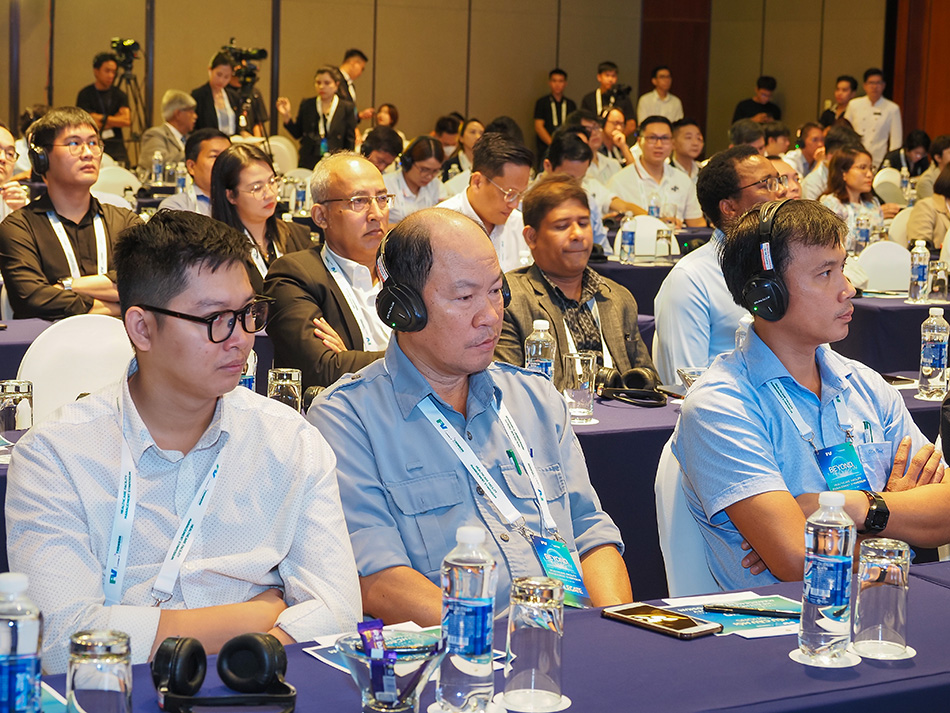
At the opening of the symposium, on behalf of the organising unit, Ms Pham Thi Thanh Mai, Chief Operating Officer of FV Hospital expressed her sincere gratitude to the speakers, sponsors, and especially to all the attendees for contributing to the success and prestige of the symposium. “Healthcare facility management is an important part of hospital operations. I hope that the knowledge and experience shared in this symposium will help improve management practices at healthcare facilities and bring the greatest benefits to patients,” said Ms Thanh Mai.
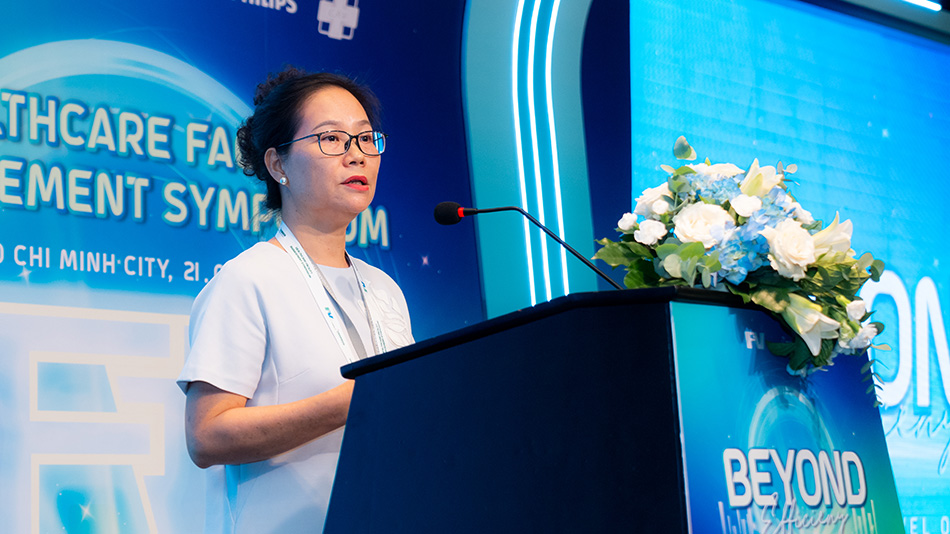
To start off the session, Mr Ng Mor Jack, Chief Operating Officer of Thomson Hospital Singapore, presentation focused on “Transforming Healthcare Delivery through Facilities Technology and Service Planning.” Mr Jack discussed the application of technology in hospital planning and operations, aiming to enhance patient care quality and design infrastructure to meet diverse patient needs.
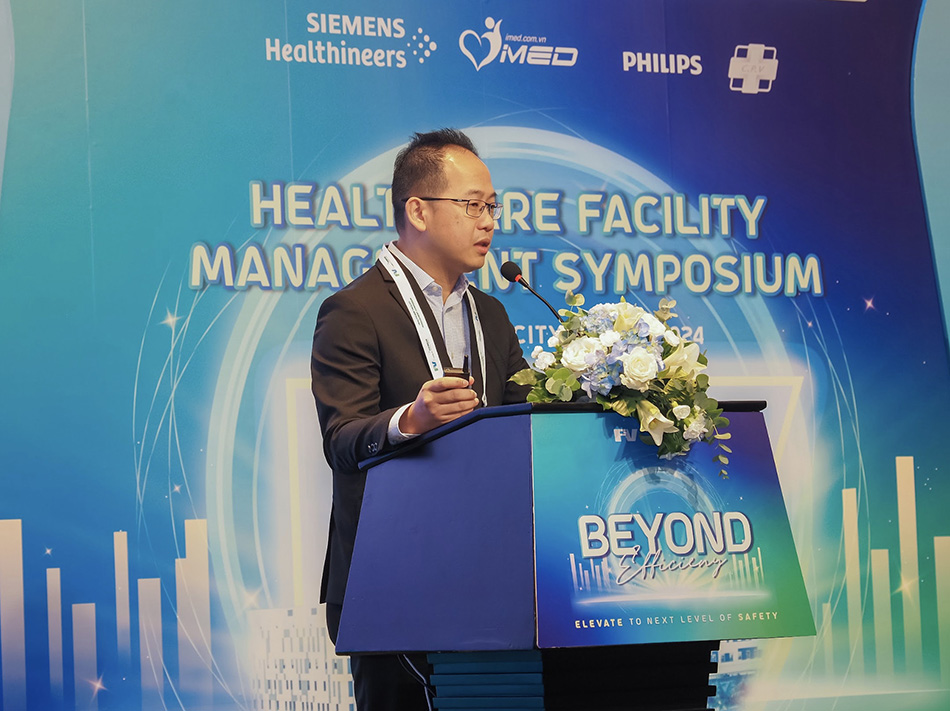
Continuing on, Mr Dhanraj Chandriani, a seasoned healthcare consultant with over 40 years of experience, elaborated the roles and responsibilities of healthcare facility managers, especially in the context of rapidly advancing technology. His figures and examples underscored the crucial role of efficient hospital maintenance operations with low costs and optimal performance. From this, Mr Chandriani emphasised that healthcare facility managers not only need to ensure effective operational infrastructure and cost savings but also must prioritise the safety and living experience of individuals within.
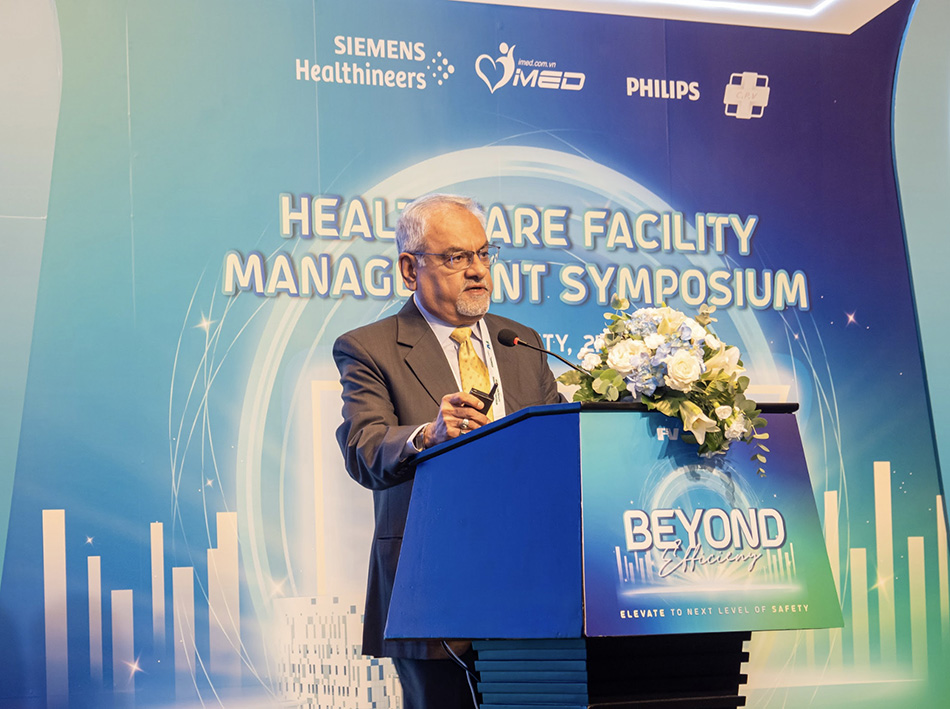
Mr Sebastian Schade, a consultant from Siemens Healthcare Singapore, continued to expand on the topic with numerous insights into medical equipment planning and consulting. With extensive experience working with healthcare investors in Vietnam, Mr Schade particularly emphasised the role of architects in initial hospital planning. He stressed the importance of optimising the design of hospital space to enhance treatment processes and operational efficiency. Mr Schade metaphorically likened, “A hospital is like an airport, due to the complexity in coordination and concentration of staff during operations.”
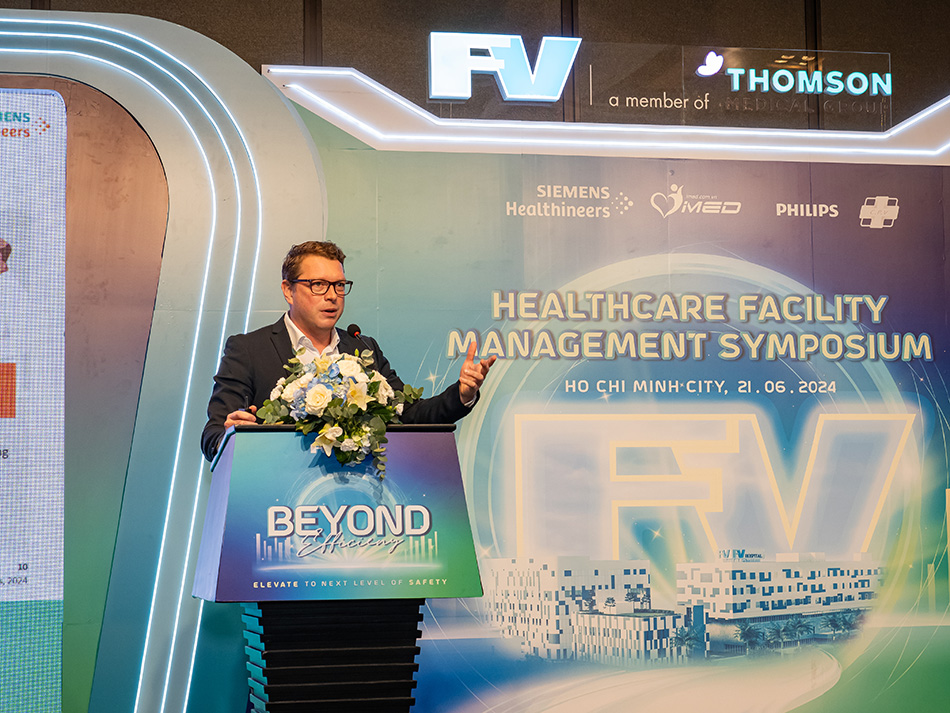
Thus, he concurred with the previous two speakers on the importance of technical management and equipment in a healthcare facility. A hospital that correctly invests in and manages its infrastructure will operate more efficiently, enhance performance, and reduce various operating costs.
Innovation of medical technology and addressing climate change
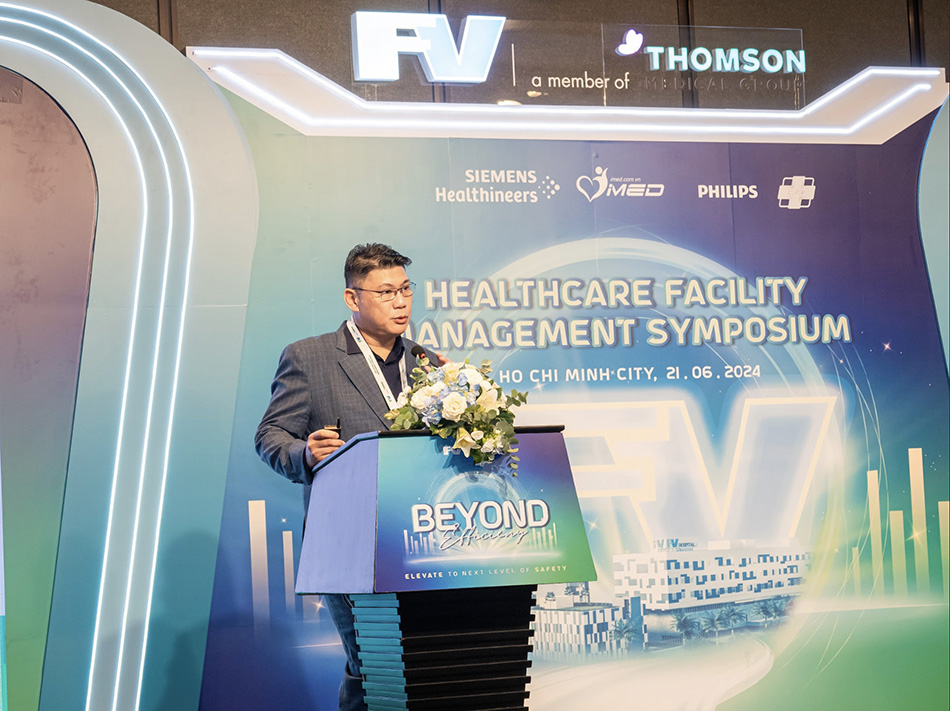
Opening the topic of “Innovation of Medical Technology,” Mr Eric Woo Kit Seong, Vice President of the ECRI Asia-Pacific Regional Office, discussed the benefits and challenges for healthcare in the modern context. He mentioned that the global medical technology market is expected to grow significantly, reaching approximately $598.9 billion by 2024, with the digital health market estimated to reach about $193.70 billion.
Mr Eric also introduced a series of technological advancements in healthcare such as robotic surgery systems, AI application in diagnosis and treatment, digital pathology, 3D printing in medicine, and telemedicine. Mr Eric emphasised, “Technology does not limit human work, but always pays attention to the compatibility of a technology with your foundation.”
In the symposium concluding presentation by Mr Monojit Mitra, Facility and Biomedical Director of FV Hospital, delivered an intriguing topic related to climate change and healthcare infrastructure management. He addressed the risks posed by climate change for healthcare facilities and discussed strategies for adaptation planning. Specifically, he focused on issues related to air pollution, water pollution and scarcity, and warnings regarding increasing temperatures in Vietnam and globally.
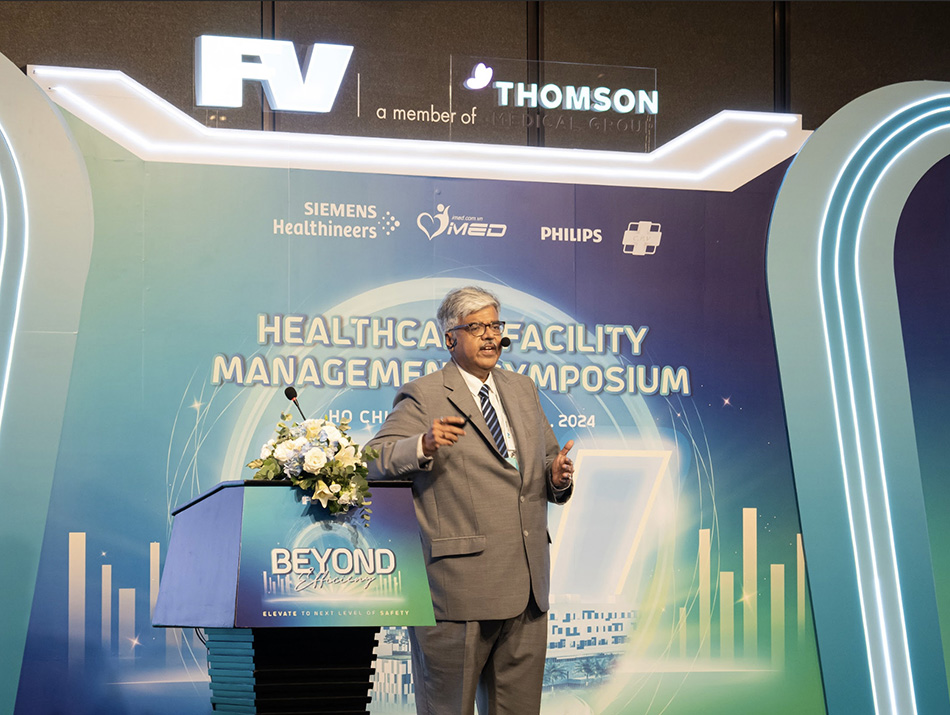
Mr Monojit Mitra proposed “green” solutions such as concentrated solar energy systems, water electrolysis – hydrogen fuel cell systems, and building cooling and energy consumption reduction solutions. Mr Monojit illustrated, “The hospital air system operates similarly to the blood circulation system in the human body,” thus; the “care” of hospital infrastructure by facility managers is akin to doctors caring for their patients.
Before the panel discussion session of the symposium, Mr Melvin Heng and Ms Pham Thi Thanh Mai expressed their gratitude to the symposium organisers and especially to the programme sponsors. These included: 2 gold sponsors – Siemens Healthcare limited company and IMED Medical equipment limited company.; 2 silver sponsors – Philips Vietnam Limited and C.P.V CO.LTD.; as well as long-term collaborators with FV Hospital such as GE Vietnam Limited, TD Medical Co. Ltd., Viet My Medical Investment Company. Mr Melvin Heng expressed hope that through continued collaboration among all parties, the “Healthcare Facility Management Symposium” will be organised on an even larger scale in the future.
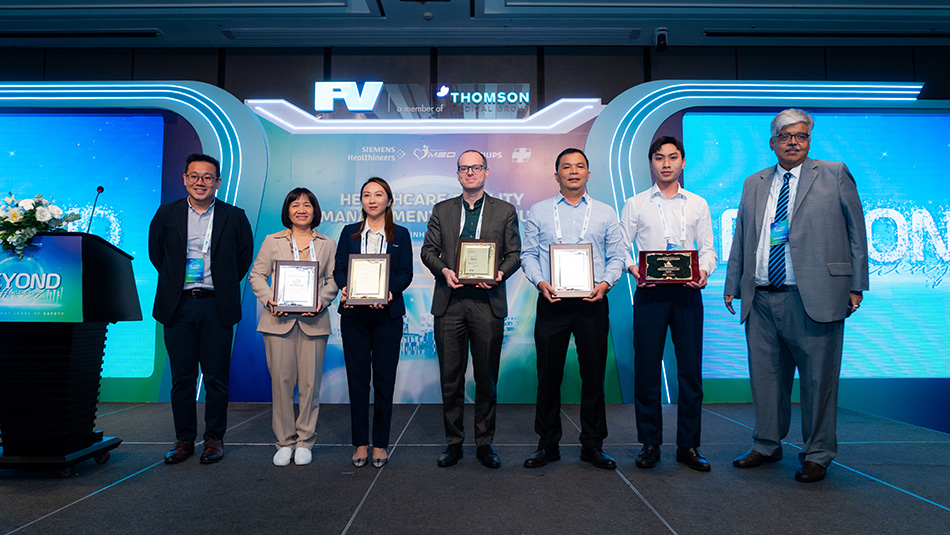
The symposium concluded with a panel discussion among experts on the role of facility management in hospitals, including ensuring communication between facility management teams and clinical teams, risk management, and procurement of new technologies. The discussions also emphasised the importance of hospital technical management for patient safety and satisfaction.
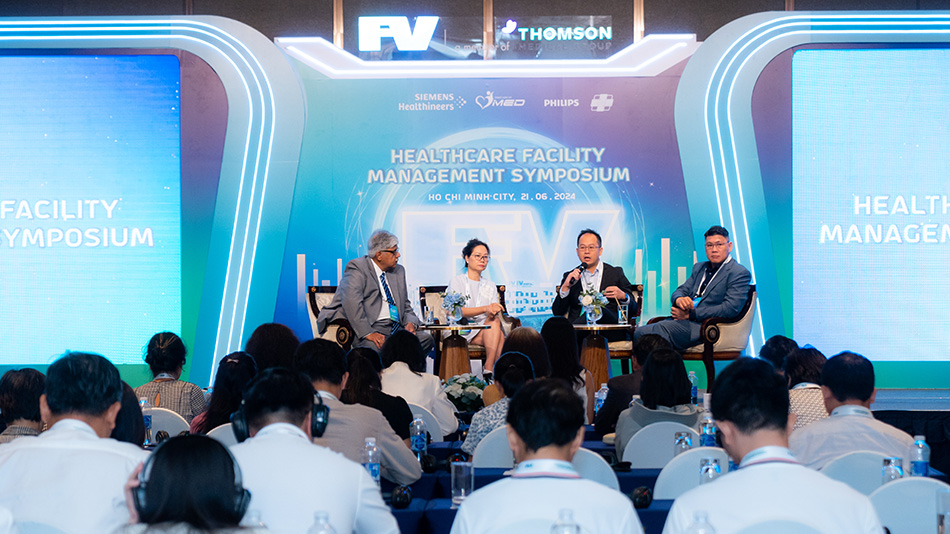
Similar to the previous two symposiums, in its third iteration, FV Hospital aims to bring practical knowledge and experience regarding the importance of managing healthcare facilities. This initiative seeks to support other healthcare entities in understanding the trends in medical technology development and gaining a comprehensive view of hospital management. Ultimately, the goal is to enhance comprehensive healthcare systems for patients in Vietnam.
| The “Healthcare Facility Management Symposium” is a special event in the “Facility Safety Week” series at FV Hospital from 17st – 21st June, 2024. For many years, FV Hospital has collaborated with universities to train students in biomedical engineering management, supporting workforce development, and enhancing healthcare quality in Vietnam. Mr Monojit Mitra noted that his team of engineers ensures the safety of over 1,500 technology systems in the hospital. Sharing knowledge and experience in medical equipment management helps create a profession that brings practical value to society. |

 Vi
Vi 












